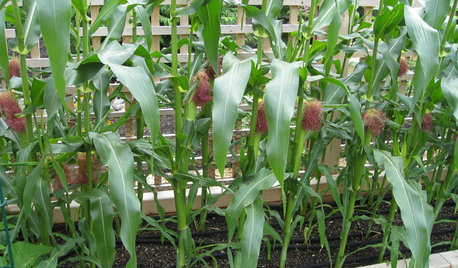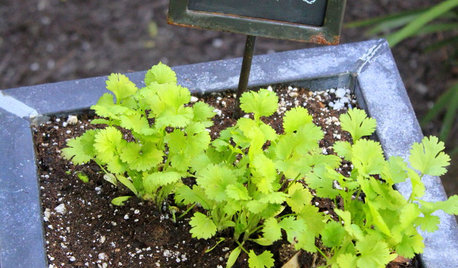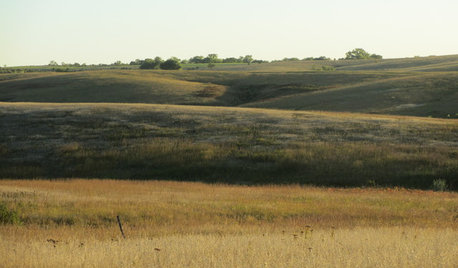thoughts on genetically engineered crops?
SandiBluffs
17 years ago
Related Stories

SUMMER FRUITS AND VEGETABLESHow to Grow Your Own Fresh, Sweet Corn
Here's how to plant and care for your own mini cornfield
Full Story
EDIBLE GARDENSHow to Grow Your Own Sweet Summer Crops
This guide will help any gardener get started on growing the freshest warm-season veggies and berries for summer
Full Story
EDIBLE GARDENSSummer Crops: How to Grow Tomatoes
Plant tomato seedlings in spring for one of the best tastes of summer, fresh from your backyard
Full Story
GARDENING GUIDESHerb Garden Essentials: Versatile Cilantro Adds Flavor to Herb Gardens
Love it or hate it, this cool-season herb contributes its unique flavor to any number or the world’s cuisines
Full Story
LIFE10 Things Night Owls Know to Be True
Love being up while the world slumbers? Prefer a really late bedtime to an early night? These observations on night owl life may ring true
Full Story
EARTH DAYThe Case for Losing the Traditional Lawn
Work less, help the environment and foster connections by just saying no to typical turf
Full Story
ARCHITECTURE4 Modern New Zealand Homes Embrace Land and Sea
Journey to the southern hemisphere to see an architect's unique way of addressing the region's topography and waterside views
Full Story
INSPIRING GARDENSFrom Concrete Lot to Gracious Organic Garden in Seattle
Plants, pests and even weeds have a place in this landscape, which offers an edible bounty and a feast for the eyes
Full Story
GARDENING GUIDESHow to Get Your Prairie On
Have a field day with your landscape, even if you've got just a few modern containers on a paved path
Full Story
EDIBLE GARDENS8 Last-Minute Additions to a Summer Edible Garden
It’s not too late to get these vegetables and herbs planted for a bountiful harvest this year
Full StorySponsored






zeedman Zone 5 Wisconsin
Bob_Zn5
Related Professionals
Azalea Park Landscape Contractors · Cliffside Park Landscape Contractors · Davidson Landscape Contractors · Fort Payne Landscape Contractors · Garland Landscape Contractors · Muttontown Landscape Contractors · Ponte Vedra Beach Landscape Contractors · Roseville Landscape Contractors · Shaker Heights Landscape Contractors · Smyrna Landscape Contractors · Vermilion Landscape Contractors · Welby Landscape Contractors · Woodland Landscape Contractors · Laguna Niguel Carpenters · Miami Carpentersled_zep_rules
zeedman Zone 5 Wisconsin
Bob_Zn5
zeedman Zone 5 Wisconsin
justaguy2